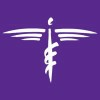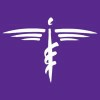How do educators know that their students are learning what they’re trying to teach?
It’s a simple question at the heart of assessment – from preschool through graduate medical education. But as the technological tools for teaching and learning evolve and curriculum requirements become more complex, our opportunities for measuring student success do, too. Taking time out to talk about innovations and challenges in assessment can feel like a luxury in a fast-paced academic environment.
That’s why a Des Moines University sought to explore attitudes and ideas around assessing student learning through a “World Café” method as part of our Higher Learning Commission Assessment Academy work. These discussion sessions were a first step in a four-year process of implementing strategies to improve assessment and student learning at Des Moines University.
“It was great to see the positive energy in the room,” says assessment specialist Michelle Rogers, Ph.D. “Most importantly, I appreciate everyone’s willingness to take a critical look at our current assessment practices at DMU and share honest insights on challenges related to this work.”
A small team hosted two one-hour World Café experiences with faculty and staff from across departments, and a session with students from a variety of academic programs. Small groups tackled targeted questions, and each table shared notes from their conversations on large sticky notes. Refreshments created a pleasant atmosphere in the library reading room. Members of the Assessment Academy team pulled themes from the discussions, which provided insights into opportunities for improvement and innovation.
“The Assessment Academy World Café provided a unique venue for valuable discussion and collaboration,” says Dr. Tracy Porter, assistant director clinical education for the Department of Physical Therapy. “Having the opportunity to interact with individuals from different colleges and departments allowed us to identify shared expertise, challenges, and visions around assessment. As an added benefit, it was fun! I sensed positive energy and a true spirit of collegiality among all participants.”
The information gleaned from the World Café sessions will provide qualitative data for the HLC Assessment Academy Team moving forward as they develop strategies to build capacity for assessment at DMU.
“Ultimately, the long-term goal of the Academy project is to support leadership in assessment,” Rogers says. “We want faculty and staff charged with teaching our students to have the support needed to implement meaningful projects focused on improving student learning in their respective areas—be it the course, program, department, or institutional level.”


